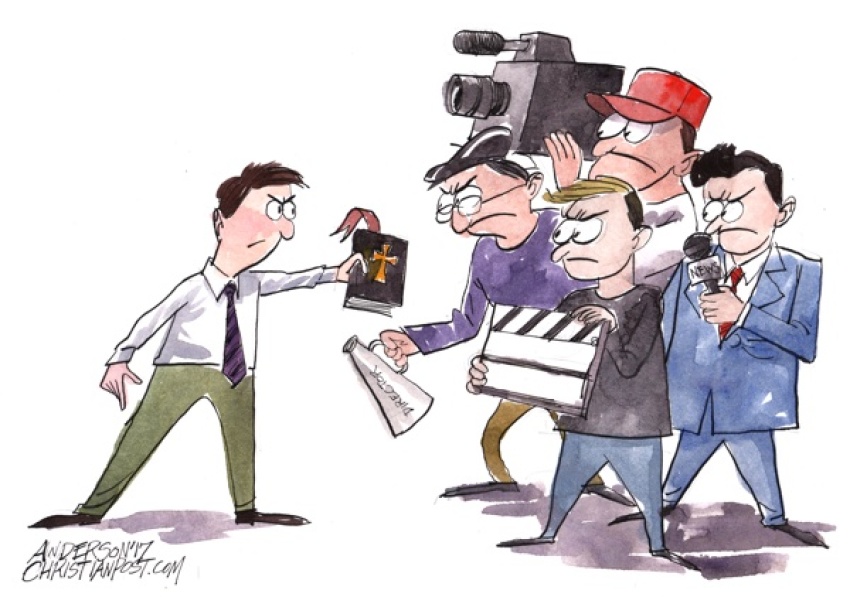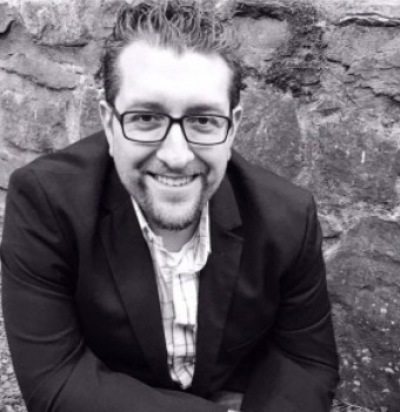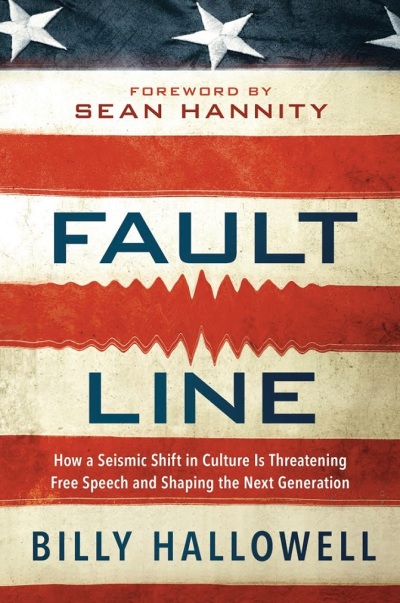How Will America's Seismic Cultural Shift Affect the Next Generation?
The following is an excerpt from Fault Line: How a Seismic Shift in Culture Is Threatening Free Speech and Shaping the Next Generation.

What's perhaps most striking about the current cultural dynamic is that ten years ago — or even five — there was an entirely different societal vibe. Extend that back a few decades and the differences are even starker. What is it that has so fervently transformed American culture? What is it that has changed our fabric so intensely? I would argue there is what I call a triangular dominance at play when it comes to how members of our society receive their information — a systematic control over educational content that has permeated our minds, our hearts, and perhaps most tragically, our souls. And it is only intensifying.

Through the media, entertainment, and university system — the three main information sources that shape the American conscience — people are bombarded with moral codes and messages that are anything but modest, restrained, or in line with biblical tenets. These educational spheres have become overridden with progressive ideals and biases that work against traditional moral understandings. Each sector incubates one worldview while filtering the other out or, more routinely, simply ignoring it all together.
Think about it. It's no surprise that millennials — the individuals who will pave the way toward the nation's future — are the adult generation that is most profoundly impacted by this dynamic since they grew up just as media and technology began to explode. And as a guy on the upper end of the millennial scale, I can speak from experience.

But the disproportionate informational focus isn't the only problem; there's also ignorance and complicity unfolding that, unless it is checked, will only incubate, empower, and metastasize this educational conundrum. Many people today are likely too indoctrinated at this point to believe — or even recognize — that there's anything wrong with the paradigm shift in moral values undoubtedly slated to transform a wide array of institutions, including marriage, the economy, and the circumstances surrounding children's upbringing.
Big changes are already afoot — movements that most certainly carry with them consequences for faith and family structures. And don't just take my word for it; Gallup made this sentiment clear in its 2015 report on morality in America:
"This liberalization of attitudes toward moral issues is part of a complex set of factors affecting the social and cultural fabric of the US Regardless of the factors causing the shifts, the trend toward a more liberal view on moral behaviors will certainly have implications for such fundamental social institutions as marriage, the environment in which children are raised and the economy."
This dynamic was more pointedly captured by the Barna Group in a 2016 report titled "The End of Absolutes: America's New Moral Code." The study opens with this ominous line about where our culture currently stands: "Christian morality is being ushered out of American social structures and off the cultural main stage, leaving a vacuum in its place — and the broader culture is attempting to fill the void." The natural resulting question is what are they filling the vacuum with? The answer: unrestrained chaos and confusion, or at the least, the impetus for such constructs.
I've heard some people scoff at the notion that something doesn't feel quite right in our culture; those who favor the move away from biblical or Christian sentiments see it as a societal benefit that we're abandoning what they see as a more limiting or conservative worldview — an abandonment that allows for a progressive and open society. And while it's true that many Americans do feel that way, the Barna study yielded perhaps one of the most bizarre statistics of all. While many people are expressing changing views on what they're willing to tolerate, the vast majority of the public also think that something doesn't feel quite right.
In fact, 80 percent of Americans expressed concern over the current "moral condition," with even 74 percent of millennials and 67 percent of people with no religion expressing concern. Not surprisingly, 90 percent of practicing Christians share these worries and concerns. Of course, I should caution that the question itself about moral condition is a relatively benign measure, considering that, at this point, morals have become oddly subjective; a high proportion among various cohorts, in this case, could simply be rooted in a dissatisfaction over the failure to see one's personal values reflected in the broader culture. Still the numbers at least tell us that there's a sense that something isn't quite right, societally speaking.
Even more shocking is what Barna found when respondents were asked for their level of agreement with the following statement: "Whatever is right for your life or works best for you is the only truth you can know." A majority of Americans — 57 percent — agreed, with 74 percent of millennials concurring either strongly or somewhat with this notion. Meanwhile 41 percent of practicing Christians agreed with this sentiment. What's perhaps most disturbing about these measures, though, is that the statement appears to link one's personal moral compass to whatever "works" for that individual person; it's quite a daunting measure when one truly pauses to consider the ramifications. But it doesn't end there. Sixty-five percent of Americans also agreed somewhat or strongly with the idea that "every culture must determine what is acceptable morality for its people."
These statistics cause one to wonder if we have become so intellectually lazy and desensitized that we can no longer separate personal standards that are shaped by thought and reason from the broader societal narratives that are imprinted and reinforced through universities, media, and entertainment.



























